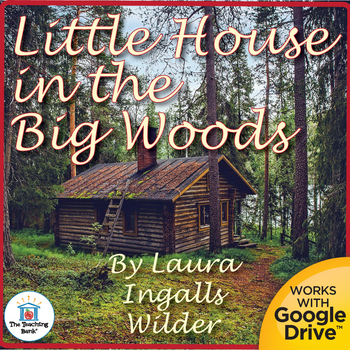

…(Laura) thought to herself, “This is now.” She was glad that the cosy house, and Pa and Ma and the firelight and the music, were now. “They are the days of long ago, Laura,” Pa said. When the fiddle had stopped singing Laura called softly, “What are days of auld lang syne, Pa?”

His voice is also the last we hear in the book: His character also emerges as complex and, overall, appealing. Pa plays games with Laura and Mary, and plays his fiddle at night so they can fall asleep. This scene establishes Pa as protector, and also as a parent who wants to help Laura face her fears. When she is frightened by the wolves howling outside, Pa reassures her-but he also carries her to the window to see the wolves. Laura’s close relationship with her father emerges very early in the book. While Ma and Mary are not my favorite characters, author-Laura drew them well. I missed the nuances as a child, but now, I understand why Ma wanted to hold the warm, drowsy child in her lap. Then she takes the sleeping baby (Carrie) from bed and sits in the rocking chair. Pa isn’t home, and although Ma doesn’t speak of her fear, she reveals it by pulling in the latch string. Half-way there Ma snatches up Laura and runs the rest of the way. However, we see another side of Ma in “Two Big Bears.” When she slaps a bear after mistaking it for the cow in lantern light, she tells Laura to walk back to the house. “Which do you like best, Aunty Lotty,” Mary asked, “brown curls or golden curls?” Ma had told them to ask that, and Mary was a very good little girl who always did exactly as she was told. There is much to admire in Ma, but her role in the hair color debate has always annoyed me. But in “Summertime,” Mary knows just how to upset Laura-by saying her own golden curls are prettier than Laura’s. I also sympathized when, later in the book, Laura slaps her sister Mary. Her frustration erupts with a declaration: “I hate Sunday!” She wished she had nothing to wear but skins. “Poor Adam, all he had to wear was skins.” “Did Adam have good clothes to wear on Sundays?” Laura asked Ma. Here’s an example from the “Sunday” chapter:


 0 kommentar(er)
0 kommentar(er)
